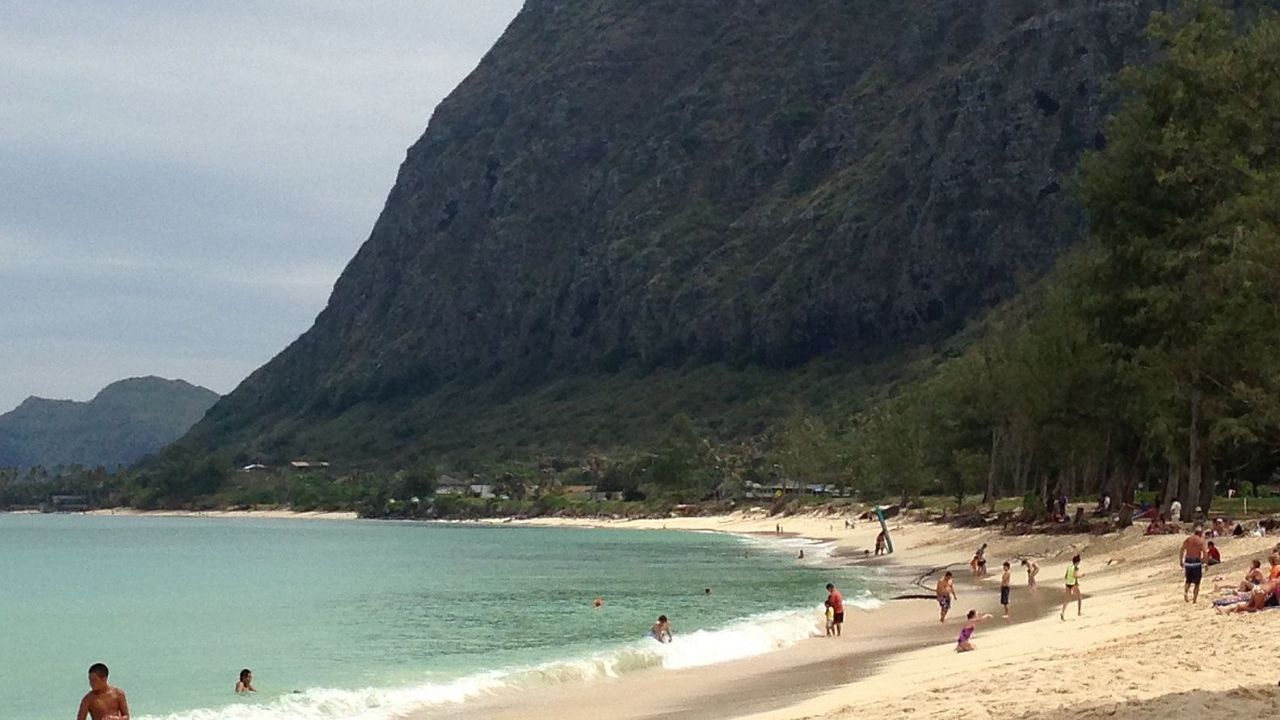HONOLULU — Honolulu Mayor Rick Blangiardi signed into law Tuesday a bill that will effectively ban most commercial activity on Windward Oahu and North Shore beaches except for television and film production.
Bill 38, introduced by Honolulu City Council member Esther Kia‘āina and passed by the Council last month, prohibits most commercial activities along shoreline areas from Waimanalo to Makapuu. Commercial activities, as defined in the bill, include wedding photography and recreational stops by commercial tour companies, perennial sources of consternation by residents of the impacted areas.
Picnics, camping, music festivals, fairs, farmers markets, youth sporting events, educational activities and activities organized or recognized by the state Department of Education or Department of Parks and Recreation area still allowed with proper permitting.
The regulations make broad exceptions for commercial film and TV production, which are considered less impactful due to the temporary, infrequent nature of their area use.
The measure was strongly opposed by wedding photography businesses that regularly use the areas.
Blangiardi said he signed the bill despite concerns about the impact of the bill on the wedding event industry.
“I listened to all sides and initially felt the ban on commercial activity from Waimalano to Makapuu, including Hunananiho, formerly Waimanalo Beach Park, was overly restrictive and unfair to an industry which suffered greatly during the COVID-19 pandemic,” Blangiardi said.
Blangiardi said he also recognized how banning commercial activity in Kailua in 2012 merely shifted the activity to other areas, including Hunananiho.
Bill 34, which passed into law last year without his signature, expanded the restrictions to North Shore beaches but only worsened the situation, according to Blangiardi.
Blangiardi said Bill 38 will not resolve the problem, either.
“Now the Honolulu City Council and the Department of Land and Natural Resources need to come up with an enforceable and fair regulatory system that will respect and honor the rights of our local residents, protect our natural resources, and establish a balanced system that allows local businesses to operate, grow and employ local residents under transparent and fair guidelines,” he said.
“This is not an all-or-none situation,” Blangiardi said. “We can balance the rights of our local residents, respect our natural resources and support our local businesses if we work together on an island-wide solution. I know we can do better.”



